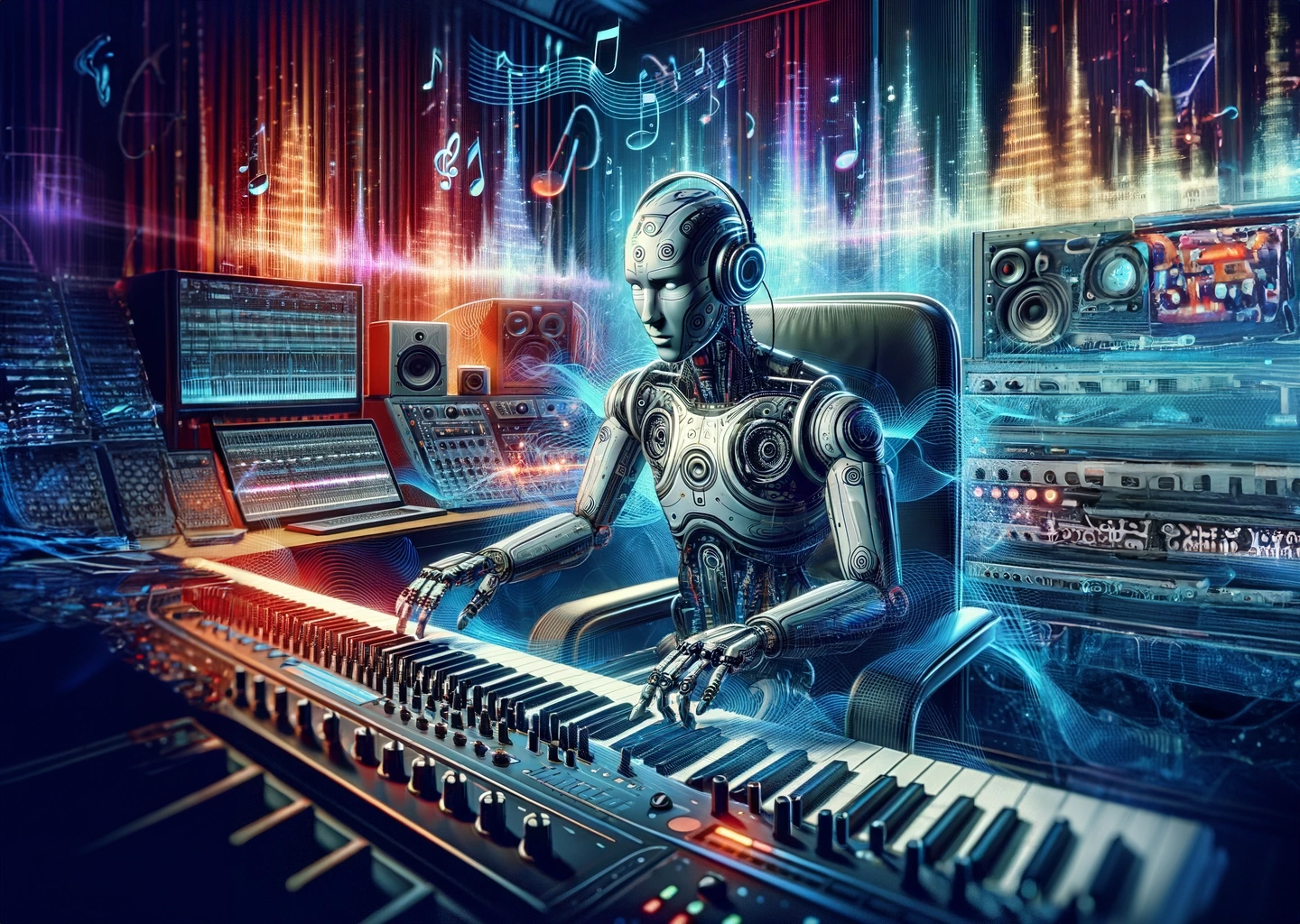|
Getting your Trinity Audio player ready...
|
In the ever-evolving world of music, artificial intelligence (AI) has become a groundbreaking force, particularly in the realm of electronic music production. This article delves into how AI is reshaping the electronic music landscape, the ethical implications of AI-generated music, and its impact on human musicians. It’s a story of creativity, controversy, and the blurring lines between human artistry and machine precision.
AI in Music: A New Composer on the Block
Electronic music, known for its blend of synthesizers, drum machines, and digital effects, is now witnessing a new player: AI algorithms. These AI systems, like AIVA, Amper Music, and Google’s Magenta, are not just tools but composers, creating music that ranges from ambient soundscapes to pulsating techno beats.

AI’s approach to music creation is fascinating. It often involves deep learning, where algorithms analyze vast music datasets to understand patterns, structures, and styles. This allows AI to generate novel and familiar compositions, pushing the boundaries of electronic music into uncharted territories.
Ethical Considerations: Authorship and Originality
The rise of AI in music brings forth complex ethical questions. One of the primary concerns is authorship. When an AI creates a piece of music, who owns it? Is it the creator of the AI, the user who inputs parameters, or the AI itself? This debate challenges our traditional understanding of creativity and ownership in art.
Additionally, there’s the issue of originality. Can AI-created music be considered truly original, or is it merely a sophisticated form of mimicry? As AI continues to produce music that resonates with audiences, it forces us to reconsider the essence of human creativity versus algorithmic output.
Impact on Human Musicians: Collaboration or Competition?
AI poses both opportunities and threats for human musicians, especially in the electronic genre. On one hand, AI can be a powerful tool for creativity, offering new sounds and inspirations. It can handle tedious aspects of music production, like mixing and mastering, freeing artists to focus on the creative side.
However, there’s also apprehension. AI’s ability to produce complete tracks rapidly and inexpensively raises concerns about job security for human composers and producers. Will AI replace human musicians or lead to a new era of human-AI collaboration in music creation?
The integration of AI in electronic music production is not just a technological advancement but a cultural shift. As we navigate this new landscape, it’s crucial to balance the innovative capabilities of AI with the irreplaceable touch of human creativity. Whether AI becomes a collaborator or competitor to human musicians, one thing is clear: the future of electronic music will be a symphony of both human and machine-made melodies, each enriching the other in ways we are just beginning to explore.
This fusion of algorithms and artistry transforms electronic music and challenges our notions of what it means to be a creator in the digital age. As we stand at this crossroads, the harmonious blend of human intuition and AI’s computational power may just be the key to the next great epoch in musical expression.






































